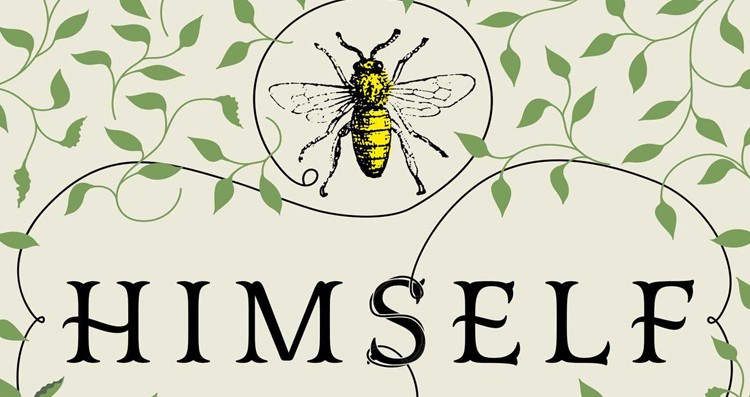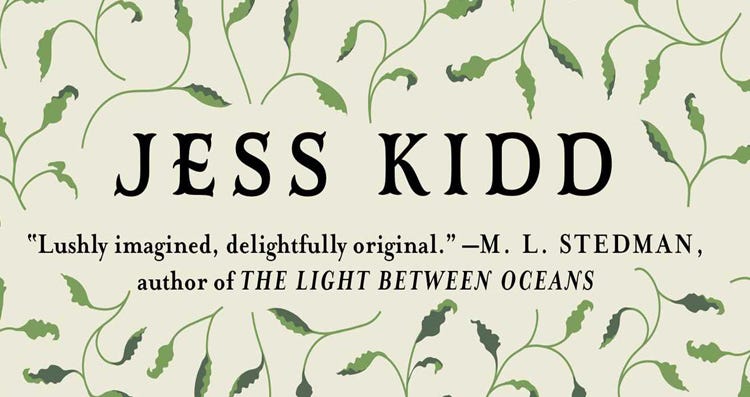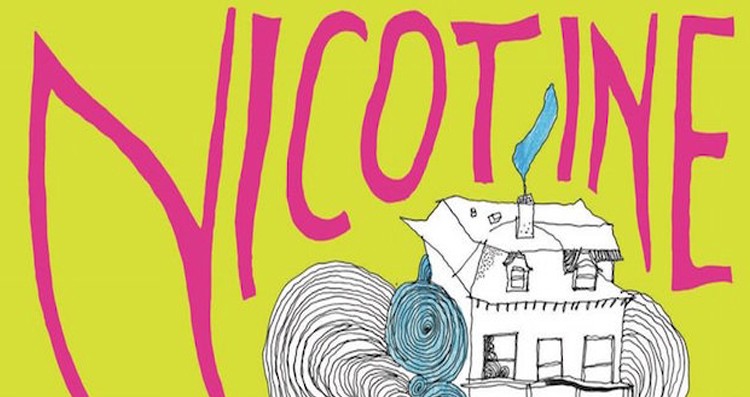Books & Culture
The Dead Join the Cast of the Living
Two characters give chase with all guns blazing in the Wild West

This is the west of Ireland and the partnership is not one you’d expect in this rich debut novel from Irish writer Jess Kidd.
At first sight the little village of Mulderrig in County Mayo, the wild west of Ireland, is benign. Nay, sleepy. But when handsome stranger Mahoney blows in from Dublin to take a break from city life, everyone and everything in Mulderrig and its frame of ancient trees begins to wake up. Twenty-six-year old Mahoney has been away from this place for all the years of his life and is only recently in receipt of the news that it is where he was born, and of who his mammy was. Except that all he knows is that her name was Orla Sweeney, she was young and “she was the curse of the town, so they took her from you.”
Not that Mahoney is going to share this new-found knowledge with the folk of Mulderrig in a hurry, for he has also been told that “they all lie, so watch yourself.” But although he declares himself to the first locals he meets to be there in search of peace and quiet, he is a man who invokes the opposite by his very presence. He disturbs not just the living souls in the place, but the dead too, and they play a big part in what is to unfold in this rollicking story.
The dead join a cast of vivid living characters in Himself, starting with Tadhg Kerrigan, a man of prodigious girth with a love of fast cars and rock ’n roll, who, after sharing several pints, offers to take Mahoney in search of lodgings. But before he even gets a place to lay his head Mahoney is disturbed by a meeting with one of the important cast of the dead. She’s a little girl with scuffed shoes who looks like any other, except that she has no back to her head and her voice sounds like someone on a bad phone connection. Her name is Ida and she will, in the fullness of time, skip ahead to lead him to a place of secrets in the woods.
But first Mahoney will settle into Rathmore House, where Shauna Burke looks after the day-to-day needs of Mrs. Cauley, “who lies in state in the library,” bald, spider-like and literally surrounded by books but very much alive. On his first night in the house the dead gather. They want to be seen, and heard:
“For the dead are always close by in a life like Mahoney’s. The dead are drawn to the confused and the unwritten, the damaged and the fractured, to those with big cracks and gaps in their tales, which the dead just yearn to fill. For the dead have secondhand stories to share with you, if you’d only let them get a foot in the door.”
Jess Kidd’s descriptions of the departed show them not as wraiths, but the shades of real people who have passed on. In the book we learn how they differ from the living. But it would be misleading to call this a ghost story, for the central mystery is very much about the living. Mahoney finds that he and Mrs. Cauley share the same kind of honesty — “The twisted kind: when something gets so wronged it gets righted” — and he tells her the real reason he has come to Mulderrig, to solve the mystery of what happened to his mother. Neither of them believes the official version that she willingly left town or gave up her child.
Mrs. Cauley, one-time renowned actress on the stage of the Abbey Theatre in Dublin, gets her books to identify — literally! — the play she should direct as her swansong for the St Patrick’s annual fundraising production. The playbill for Synge’s “The Playboy of the Western World” emerges and is presented to her by the ghost of Johnnie, best-beloved of her former lovers. This will be the vehicle for her joint pursuit with Mahoney, starting with the auditions, where interrogations of all potential suspects will begin.
It is a fine conceit, and makes an excellent container for the unfolding story, which could otherwise threaten to spill over into confusion. But Jess Kidd marshals her motley cast with sharp and affectionate definition, amongst them the lovely Róisín Munnelly, mother of skipping Ida, weasel-faced Father Eugene Quinn and his housekeeper Bridget Doosey, “the second sharpest old biddy in town,” the elusive Tom Bogey for whom the villagers leave sandwiches, soap and pipe-cleaners on a roadside shrine, and so on, not forgetting Miss Mulhearne (spinster, deceased).
These are glorious characters, worthy successors to those of Dickens and Dylan Thomas. And it’s not just the characters who bring to mind those who inhabit the Welsh village of Llareggub in Thomas’s “Under Milk Wood.” Jess Kidd is an author who shows a poet’s way with words and rhythm in her evocation of Mulderrig at night, silent but for various soft sounds around its sleepers, including:
“Mulderrig is silent but for the bats that sing in the key of darkest sonar as they spool in and out of the attic of Rathmore House. Where Mrs. Cauley sleeps in her magical library, hairless and open mouthed, fat-bellied and spindle-armed. She’s treading the boards again tonight, all night.”
And, sewing the pieces together, a plot of which Agatha Christie would have been proud. There is murder most foul involved and Mahoney soon realises that he is at risk himself. After the performance of the play as the action accelerates to its climax there is a car chase in which you can almost hear the screeching of the brakes of Tadhg Kerrigan’s sky-blue Eldorado as you turn the pages.
Aided by supernatural forces swirling through the village, which include a Holy Well appearing in Father Quinn’s library, complete with frogs, Mrs. Cauley and Mahoney — now accorded the respectful Irish epithet ‘himself’ — do pull off a triumph with the play. And they do solve the mystery. Or rather, a part of it. Mahony may have reached a way of moving on, but there are things which remain mysterious in Mulderrig, stories started and awaiting an ending, characters whose future is uncertain.

Father Quinn runs out of the story in his underpants to who knows where and the new priest who inherits his damp library wonders vaguely why it is so. But isn’t this just like life? The bees can understand it all, for, we’re told, “they know all things,” but the rest of us must simply muse upon it all or wonder whether Jess Kidd might be writing a sequel to this beautifully paced, sometimes funny, sometimes sad and ultimately heart-warming book. I’d say a definite “yes please” to that.









